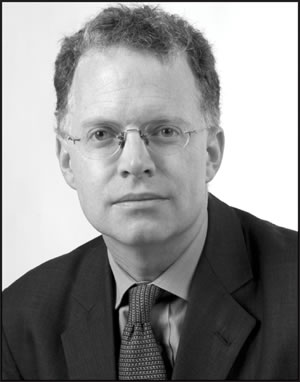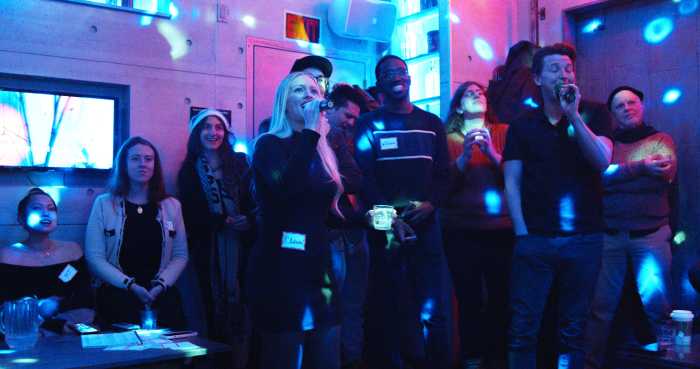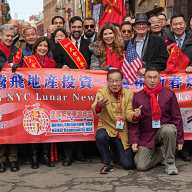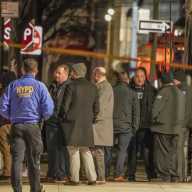BY David McCabe
A foreign correspondent for the New York Times, David Rohde has been all around the world, from Israel to Bosnia, asking questions, but for about an hour last week he answered questions from an audience at the 9/11 Memorial Preview site on topics ranging from his kidnapping by the Taliban to his observations on the region.
Almost a year ago, Rohde’s story became public knowledge when the Times announced that he and an Afghan journalist named Tahir Luddin had escaped from captivity in Pakistan after seven months. Rohde was on his way to interview a Taliban commander Abu Tayyeb for a book he was writing on the ongoing conflict in Afghanistan, when Tayyeb, kidnapped him, along with Luddin and their Afghan driver, Asad Mangel.
After a week in Afghanistan, Rohde and the others were moved across the border, to North Waziristan, a tribal territory in Pakistan that Rohde said has become a “Taliban mini-state,” where Pakistani army posts had been abandoned. He told the audience that while the United States and the NATO coalition destroyed the Taliban in Afghanistan, they simply relocated to Pakistan and became more extreme.
The reporter mentioned that Faisel Shazad, the so-called “Times Square bomber,” had received training in North Waziristan. He said that during his captivity, his guard took classes on how to make roadside bombs.
Rohde said that his kidnappers were linked to a powerful terrorist group led by Sirajuddin Haqqani. The group, which Rohde termed “the Haqqani network,” is responsible for many of the suicide bombings in Kabul, Afghanistan.
His captors told him and his colleagues that they wanted both money and prisoners in return for their release, but Rohde told the audience he knew that was unlikely, because the United States does not negotiate with terrorists. He pointed out that other governments are often willing to pay ransoms for captured reporters or citizens, so terrorist groups still believe they can benefit from kidnapping these civilian targets.
Rohde distinguished between the Taliban that held him and the Taliban in Afghanistan, who are less ideologically motivated and with whom some “reconciliation” might be possible. “They are like young men anywhere: they want jobs, they want something to do,” he said of many of the young Taliban militants in Afghanistan.
“The guys who held me, the Haqqanis, are much more aligned with the idea that they have to establish Sharia [one type of Islamic law] across the entire Muslim world. They see themselves as a much broader movement,” he added.
He said that in territories like North Waziristan, many of the Taliban fighters know nothing at all about the September 11 attacks. If they are aware that the attacks occurred, they believe that it was a Western conspiracy to justify a massive attack on Islam.
This lack of correct information permeates much of the lower ranks of the Taliban, he noted. He said that his captors believed that the Somali pirates who captured Captain Richard Phillips in 2009 were not actually shot, but were paid by America to let Phillips go. Myths like this, he said, keep alive the idea that the United States government will pay money to free its citizens from captivity.
Rohde added that a particularly prevalent myth is that the American military is forcing Muslims in the Middle East to convert to Christianity and forcing Muslim women to become prostitutes.
He said that it is important to communicate the truth about 9/11 and American involvement in the Middle East through moderate Muslims like Luddin, who the more extreme fighters are more likely to listen to.
Of these moderate Muslims, Rohde said, “They can’t do it alone- they need our support – but they need to be out in front. We have to listen to them and take their advice about how to counter [the extremists] ideologically.”
The 9/11 Memorial, he said, is an incredibly important tool to communicate the truth about the attacks. He said that after the escape, he brought Luddin to the site, in order to tell him what Rohde, who helped cover the aftermath of the attacks from Lower Manhattan, had seen in 2001. He said the museum could be a very beneficial site, because it could present the truth about 9/11 to a large foreign audience.
“People are swayed by facts when they’re exposed to them. They wont actually announce it — you can’t tell that they’re being swayed — but I do think it all makes a difference over time,” he said.
Many of the questions posed to Rohde were related to the details of his captivity and his state of mind during those seven months and ten days. An audience member asked how he maintained hope during his captivity, Rohde said he focused on his family and wife Kristen, who he had married two months before he left for the Middle East. He realized after he was captured that “going to this interview was a mistake” because of the risk involved and how his captivity would affect his family.
He also said that he knew he could be killed, but wanted to do what he could in order to save Luddin and Mangal who, he wrote in a five-part feature article published by the Times after his escape, had nine children between them.
When he arrived in the Middle East planning to write a book about the ongoing conflict in the region, he ultimately wrote a very different account, entitled A Rope and a Prayer: The Story of A Kidnapping.
He said that while writing the series for the Times he tried to use his story as a vehicle for a larger point.
“I didn’t enjoy telling my own story but I felt like it was really important to publicize what was happening in Pakistan — in the tribal areas — so my goal in the series was to use my story to point out the broader issue of what is happening…I tried to strike a balance,” he said.
Asked how he managed to communicate with his captors, who despised Americans and the West, he said he tried to find common ground with them.
“You just point out the common human experiences we all have. You talk about family. I talked about getting married. They talked about their parents. I talked about my parents,” he said, adding, “There are common experiences we can draw on, even in a place like Waziristan.”



































